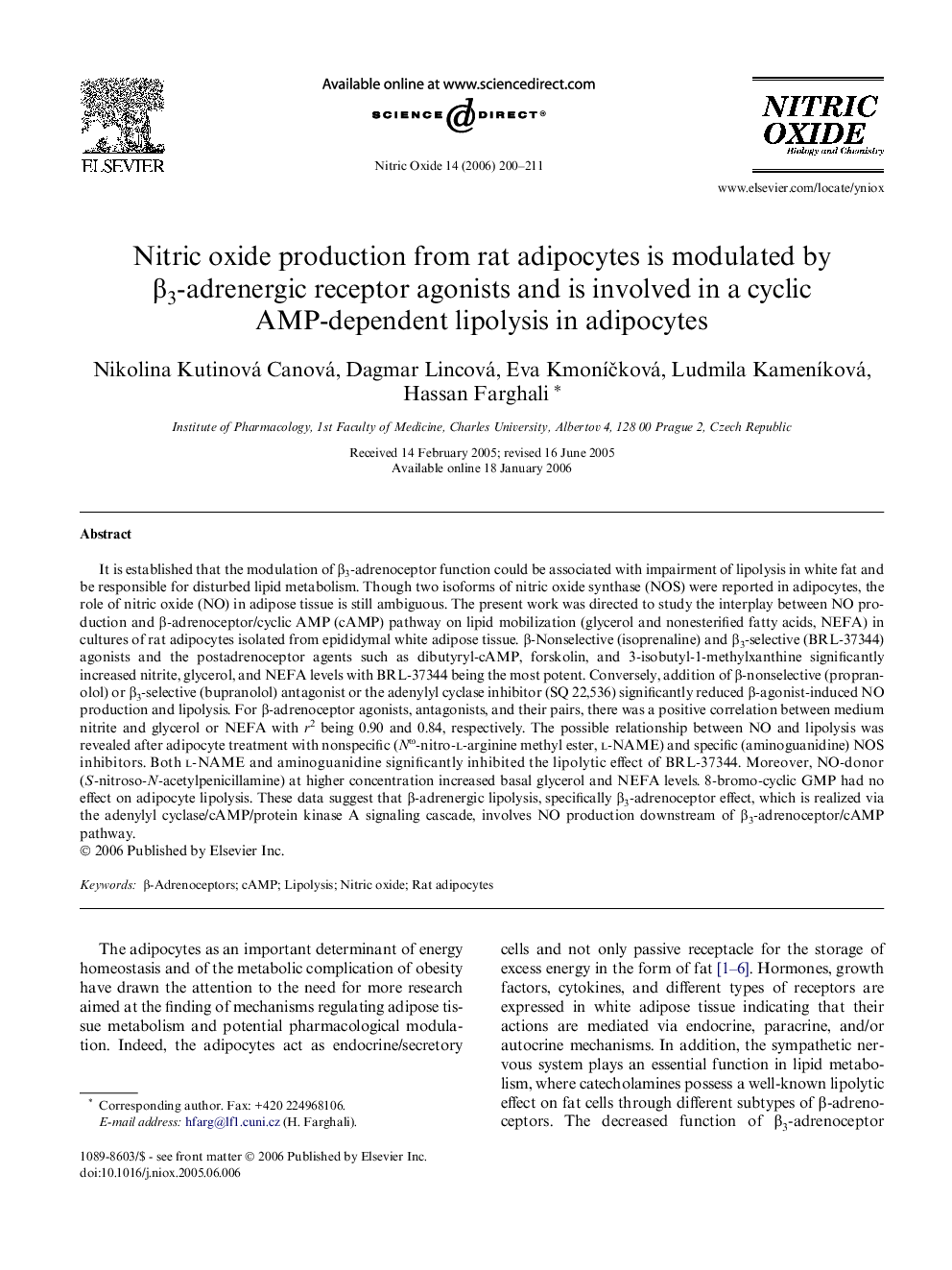| Article ID | Journal | Published Year | Pages | File Type |
|---|---|---|---|---|
| 2002214 | Nitric Oxide | 2006 | 12 Pages |
It is established that the modulation of β3-adrenoceptor function could be associated with impairment of lipolysis in white fat and be responsible for disturbed lipid metabolism. Though two isoforms of nitric oxide synthase (NOS) were reported in adipocytes, the role of nitric oxide (NO) in adipose tissue is still ambiguous. The present work was directed to study the interplay between NO production and β-adrenoceptor/cyclic AMP (cAMP) pathway on lipid mobilization (glycerol and nonesterified fatty acids, NEFA) in cultures of rat adipocytes isolated from epididymal white adipose tissue. β-Nonselective (isoprenaline) and β3-selective (BRL-37344) agonists and the postadrenoceptor agents such as dibutyryl-cAMP, forskolin, and 3-isobutyl-1-methylxanthine significantly increased nitrite, glycerol, and NEFA levels with BRL-37344 being the most potent. Conversely, addition of β-nonselective (propranolol) or β3-selective (bupranolol) antagonist or the adenylyl cyclase inhibitor (SQ 22,536) significantly reduced β-agonist-induced NO production and lipolysis. For β-adrenoceptor agonists, antagonists, and their pairs, there was a positive correlation between medium nitrite and glycerol or NEFA with r2 being 0.90 and 0.84, respectively. The possible relationship between NO and lipolysis was revealed after adipocyte treatment with nonspecific (Nω-nitro-l-arginine methyl ester, l-NAME) and specific (aminoguanidine) NOS inhibitors. Both l-NAME and aminoguanidine significantly inhibited the lipolytic effect of BRL-37344. Moreover, NO-donor (S-nitroso-N-acetylpenicillamine) at higher concentration increased basal glycerol and NEFA levels. 8-bromo-cyclic GMP had no effect on adipocyte lipolysis. These data suggest that β-adrenergic lipolysis, specifically β3-adrenoceptor effect, which is realized via the adenylyl cyclase/cAMP/protein kinase A signaling cascade, involves NO production downstream of β3-adrenoceptor/cAMP pathway.
